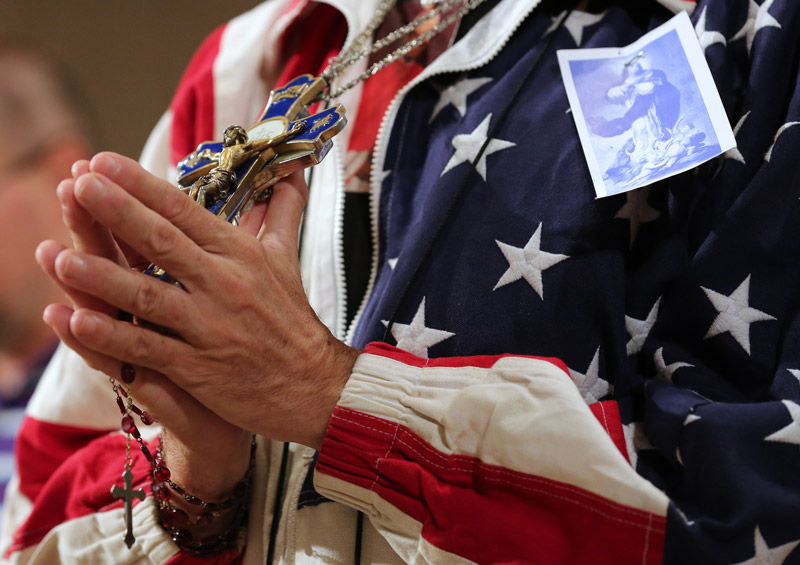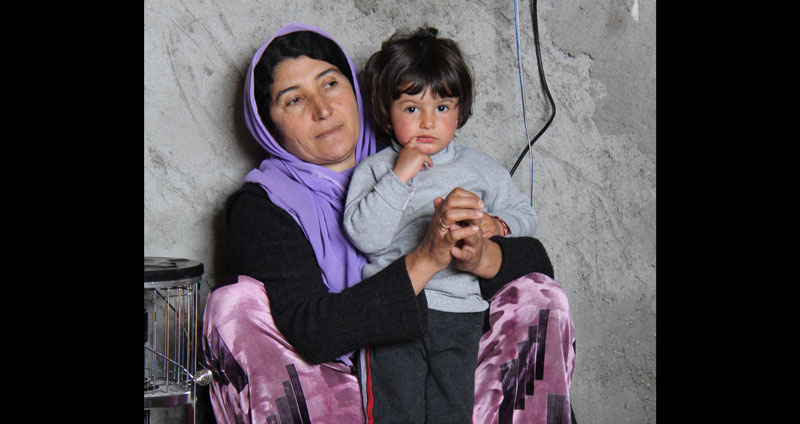WASHINGTON—A bishop who played a key role in drafting the U.S. Conference of Catholic Bishops’ new pastoral letter on racism offered practical suggestions on how Catholics can foster racial justice and mutual respect in their homes, parishes, schools and communities.
Bishop Shelton J. Fabre of Houma-Thibodaux, Louisiana, delivered a keynote address on the topic Nov. 17 at a social justice gathering in Washington.
“Racism’s real nucleus and energy, as well as its greatest damage done, remains on the level of the human heart. … The church is in the unique position to challenge racism in the human heart by calling for a conversion of heart,” he said at the District of Columbia Regional Meeting of Popular Movements.
Held on the campus of The Catholic University of America in the nation’s capital, the gathering was modeled after the World Meeting of Popular Movements, an initiative of Pope Francis designed to create encounters between members of the Catholic Church and grassroots organizations to work together for justice.
The regional meeting brought together 200 people from local Catholic parishes and institutions along with representatives of advocacy groups. It was co-sponsored by Catholic University’s National Catholic School of Social Service and the Archdiocese of Washington and its Catholic Charities agency.
In addition to addressing racism, the gathering featured panels on homelessness and housing issues, environmental justice, labor and immigration.
Bishop Fabre spoke three days after the U.S. bishops overwhelmingly approved the new pastoral, titled “Open Wide our Hearts: The Enduring Call to Love,” during their fall general assembly in Baltimore.
He is chairman of the USCCB’s Ad Hoc Committee Against Racism and the Subcommittee on African American Affairs and a member of the Committee on Cultural Diversity in the Church.
Noting that the recent rise in racist acts and speech had spurred the bishops to issue the pastoral, Bishop Fabre quoted from the document: “Despite many promising strides made in our country, racism still infects our nation. … Racism occurs because a person ignores the fundamental truth that, because all humans share a common origin, they are all brothers and sisters, all equally made in the image of God.”
Bishop Fabre, who is African-American, said he has “experienced and witnessed the effects of interpersonal racism, as well as structural and institutional racism,” which he said causes suffering both in those who perpetuate it and those who are victimized by it.
“Those who perpetuate racist thoughts and actions suffer without even realizing it, as their lives are diminished and slowly choked off by their own hatred, fears, anxieties and selfishness,” he said. “They fail to receive the richness, the grace and the freedom of an encounter of depth with those who are racially or culturally different from them.”
Those victimized by racism not only experience the impact of poverty and injustice that it helps cause, but they also bear an emotional toll, even struggling “with their own value and dignity as a person” that can lead to hopelessness and despair, the bishop said.
The Catholic Church in confronting the evil of racism must honestly acknowledge and work “to heal its own past wounds,” he said. When slavery was legal in the United States, some religious orders owned and profited from enslaved people, and during times of segregation, African-American Catholics in some churches had to sit in back pews and wait until the end of the Communion line to receive the host.
“While the church has helped in the challenge of overcoming racism through its teaching and proclamations, it must also humbly admit that in its humanity the church has also in certain ways capitulated to racism, at times falling horribly and sinfully short in the firmness of its resolve to engage in the struggle to eradicate racism from the minds and hearts of its members and from the fabric of society,” the bishop said.
Examining that sinfulness on the part of individuals, the church and society is necessary to combat racism, he said, adding: “It is only from a place of humility that we can look honestly at past failures, ask forgiveness and move towards healing and reconciliation.”
Bishop Fabre said the Ad Hoc Committee Against Racism will encourage educational institutions, seminaries and houses of formation to implement a curriculum offering “new and innovative ways to raise awareness and promote adequate incorporation of the history, culture, and traditions of all the people of faith, including our brothers and sisters of color in our nation.”
The committee also will provide resources to help parish staff and volunteers promote human dignity and equality, and bishops, priests and deacons will be encouraged to preach “homilies that regularly address issues concerning race and its impact on our homes and communities,” he said.
The bishop also stressed the importance of religious education programs, Catholic schools and campus ministries developing curriculums on racism and reconciliation.
Families, too, have an important role, he said, by reflecting on how everyday conversations can be affected by racial prejudice.
Parents, the bishop said, can “provide experiences for their children that expose them to different cultures and people, altering our daily routines to broaden our own family social views. As a body of families, we can then draw upon the incredible diversity of the church nationwide in providing education within the family and make clear that God dwells in the equal dignity of each person.”
Bishop Fabre said “the pastoral letter proclaims that racism is a life issue. As such, we should proclaim and work for an end to racism with the same passion that we work for an end to all other attacks against the sanctity and dignity of all human life.”
By Mark Zimmermann/Catholic News Service: Zimmermann is editor of the Catholic Standard, newspaper of the Archdiocese of Washington.



